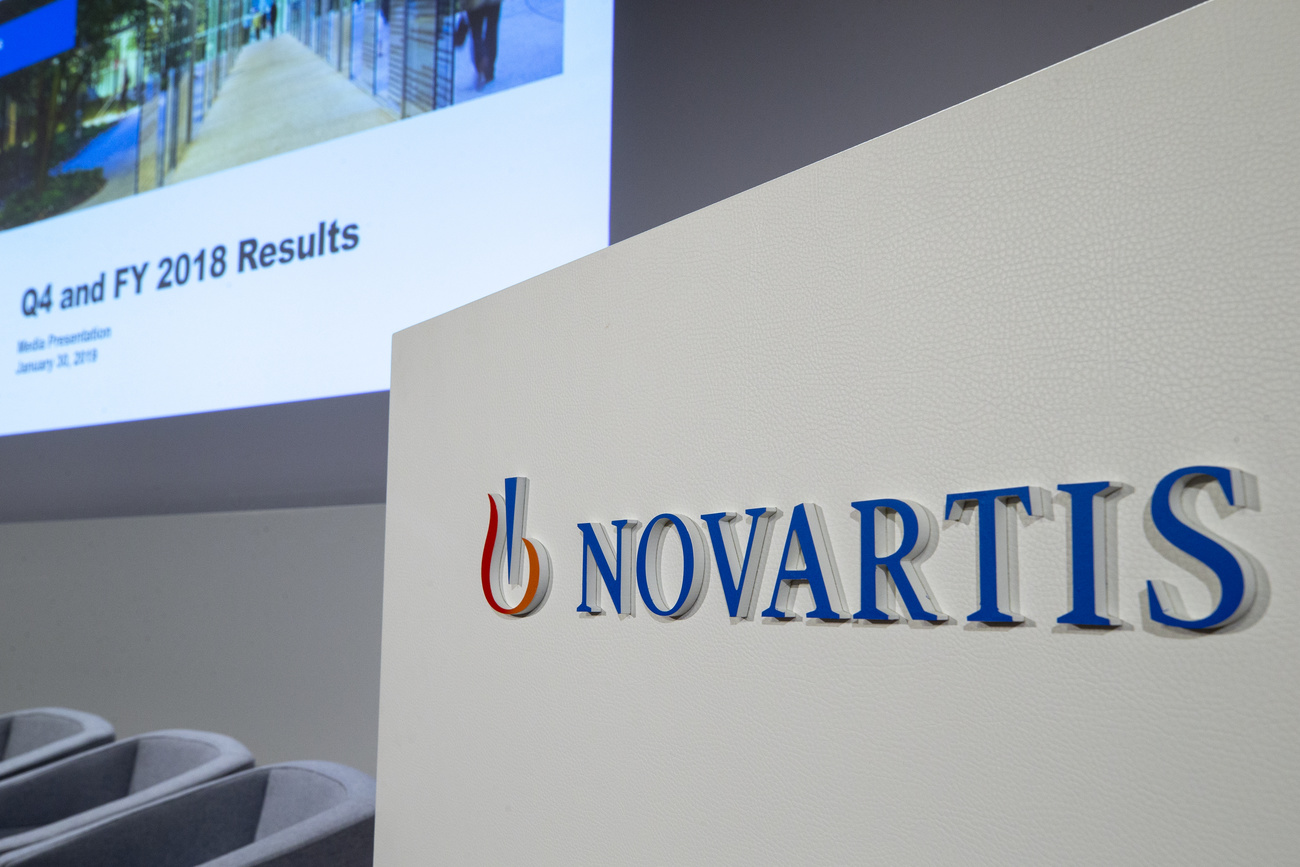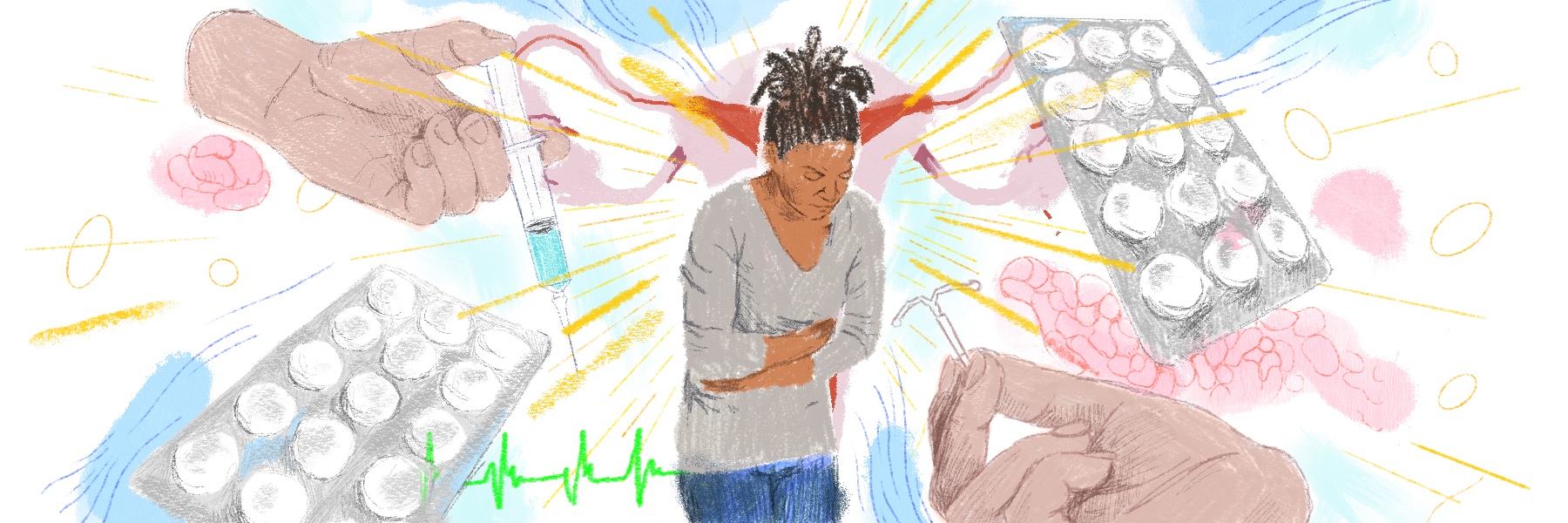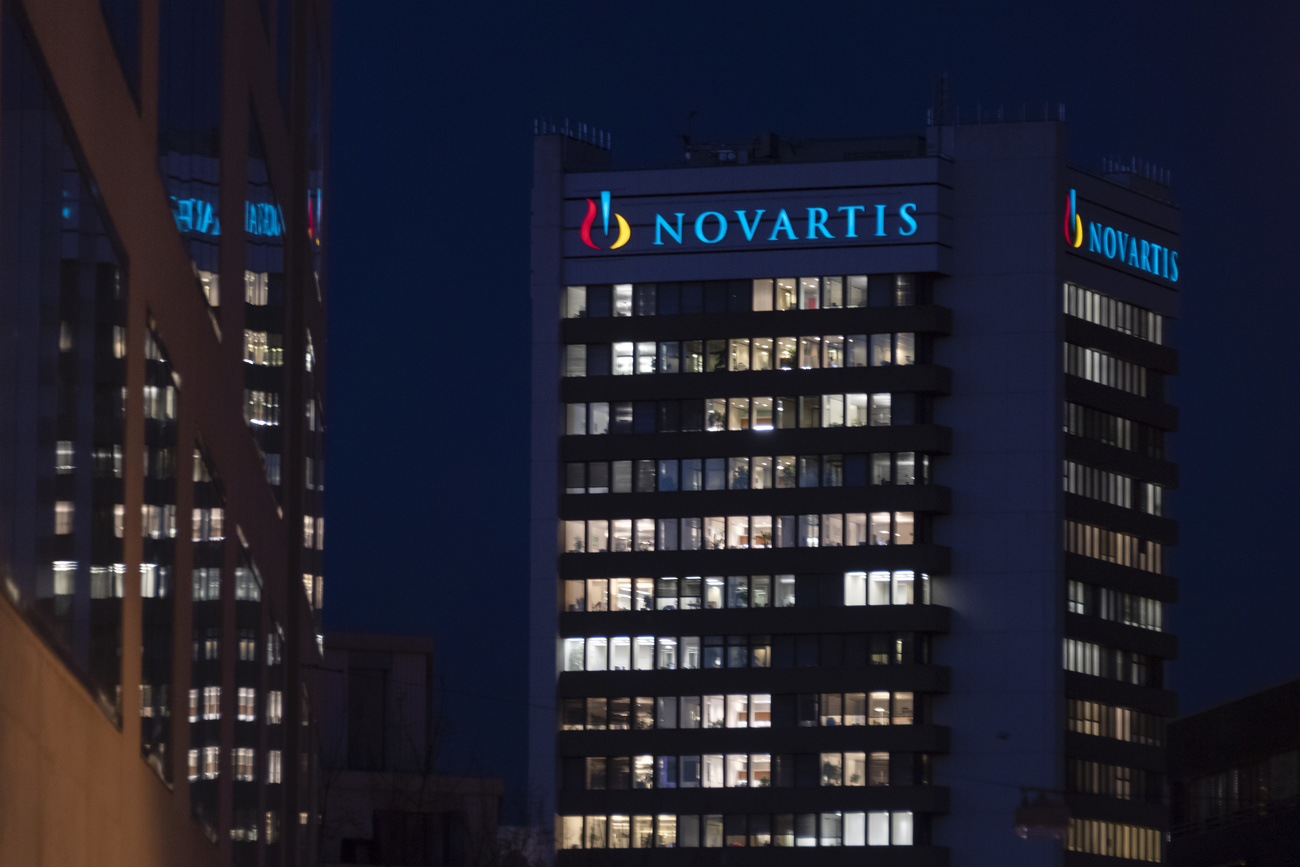Novartis seals deal to license high-priced cancer drug

Swiss pharma giant Novartis has finalised a deal with the Geneva-based Medicines Patent Pool to allow generic production of its patented drug nilotinib to treat chronic myeloid leukemia.
The deal, which was formally signedExternal link on the sidelines of the World Cancer Congress in Geneva this week, marks the first time a pharmaceutical company is making a patented cancer medicine available through a voluntary licensing scheme.
“This is important because it’s the first and helps show that voluntary licences can work for cancer drugs,” Charles Gore, the executive director of the Medicines Patent Pool (MPP), told SWI swissinfo.ch.
More
Nilotinib, which Novartis sells under the name Tasigna, is a targeted therapy for patients with a specific genetic abnormality in a chromosome of leukemia cancer cells. It was listed as an essential medicine by the World Health Organization (WHO) in 2017 but has been difficult for many countries to access because it is either not registered in the country or is unaffordable. Some estimatesExternal link of the price range from $25,000-$115,000 (CHF25,100-$115,600) per month depending on the country.
By granting voluntary licences, companies allow generic drug companies to manufacture a drug before its patent has expired, effectively creating competition to bring down the price. The United Nations-backed MPP, which is partly funded by the Swiss Development and Cooperation Agency, was set up in 2010 to help facilitate voluntary licences to expand access to drugs in low- and middle-income countries. This started with HIV/AIDS drugs, and has expanded to other infectious diseases, including Covid-19.
It’s been more difficult to convince companies to license drugs for non-communicable diseases such as cancer, which is a major revenue generator for big pharmaceutical companies. This is in part because cancer has been seen as more complex than HIV care, requiring more sophisticated diagnostics and trained specialists. Companies have also been reluctant to open up the market to competition, even in countries where they haven’t commercialised drugs.
Beyond the numbers
Novartis had already announced earlier this year that it planned to make nilotinib available under a “freedom to operate” licence. This was one of the first moves by a company under the banner of the Access to Oncology Medicines Coalition (ATOM) – a public-private partnership to expand access to essential cancer drugs in low-and middle-income countries, launched in May.
This week’s announcement offered more details into the deal, which will allow MPP to grant sublicences to qualified generic companies to manufacture and distribute the medicine in 44 priority countries identified by the ATOM coalition. All royalties from the licences are intended to be reinvested back into the coalition.
The impact of the deal on patients is expected to be limited though given the drug’s main patent expires in July 2023, which doesn’t leave much time for generic producers to have an impact on price and access in most countries. However, it could help patients in seven countries where patents on the drug are still in force or pending for another 4-6 years. This includes Egypt, Guatemala, Indonesia, Morocco, Pakistan, the Philippines and Tunisia.
The number of patients who could benefit in these countries is expected to be fairly small. Nilotinib is recommended for patients who are resistant or intolerant to the first line treatment, which is only in the case in about 20% of patients.
“In terms of the number (of patients) this isn’t a huge deal but in terms of what it represents, it is a big deal because it’s never been done before,” said Gore adding that the hope is that this sets a precedent for other drugs and companies to follow.
A spokesperson from Novartis told SWI that the company hopes this will provide a new model for the sector to help close the gaps in access to life-changing medicines. According to Gore, MPP is in discussions with Novartis and other drugmakers regarding voluntary licences of other cancer drugs.
In 2020, more than 3.5 million new cancer cases were diagnosed in developing countries. But less than 50% of the cancer therapies on the WHO’s essential medicines list are available in those countries, according to ATOM.
“We need to stop accepting that a drug that prolongs someone’s life so significantly is only available here and not in other countries,” said Gore. “No new important drug should be issued without a simultaneous plan to make it available to people everywhere, ideally within a year.”

More
Innovation in women’s health comes in small doses

In compliance with the JTI standards
More: SWI swissinfo.ch certified by the Journalism Trust Initiative













You can find an overview of ongoing debates with our journalists here . Please join us!
If you want to start a conversation about a topic raised in this article or want to report factual errors, email us at english@swissinfo.ch.